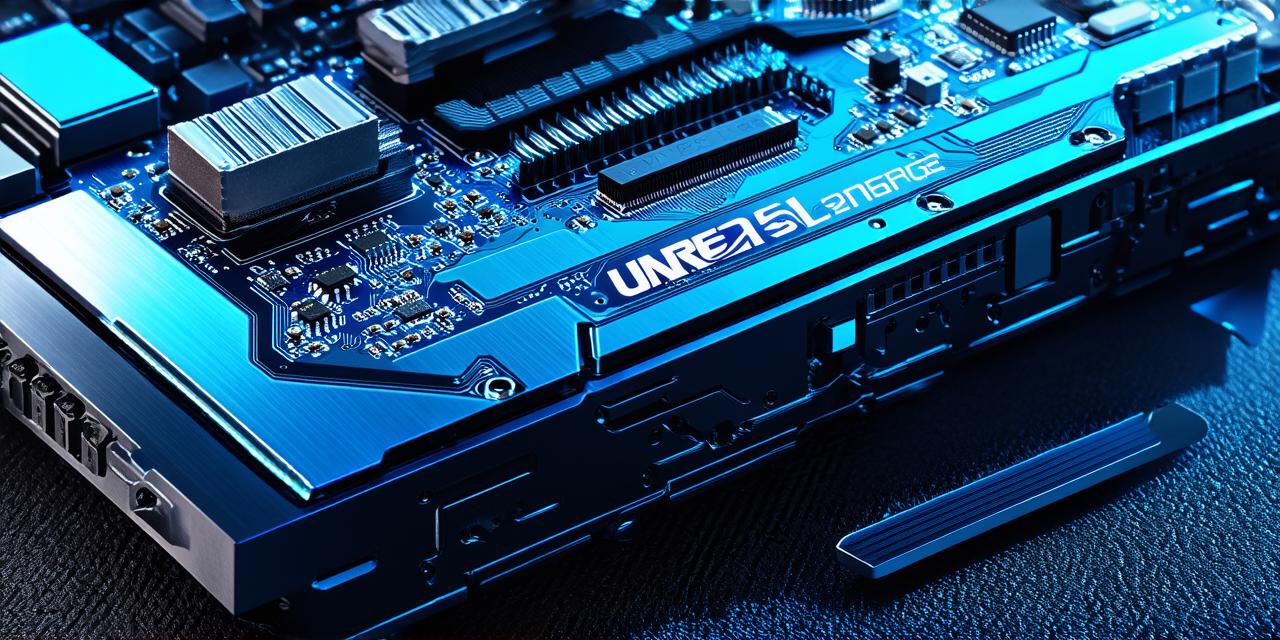As a developer looking to create stunning virtual environments and immersive games using Unreal Engine 5, it’s important to consider the hardware requirements for your project. With the latest version of this powerful game engine, the minimum specifications for running it smoothly on a PC can be quite demanding. In this article, we will take a closer look at the PC requirements for developing with Unreal Engine 5 and provide some insights into how to optimize your system for better performance.
Minimum PC Requirements for Unreal Engine 5
According to Epic Games, the minimum specifications required to run Unreal Engine 5 on a PC include:
- Intel Core i7-4700K or AMD Ryzen 7 1700X or higher
- NVIDIA GeForce GTX 960 (2 GB) or AMD Radeon R9 280 (2 GB) or higher
- 16 GB of RAM
- Windows 10 (version 19H2 or later)
These requirements may seem relatively high, but they are necessary for running the latest version of Unreal Engine smoothly. With these specifications, developers can create high-quality projects with stunning graphics and complex physics simulations. However, it’s important to note that even with these minimum requirements, some tasks within Unreal Engine 5 may still be slow or challenging to run.
Recommended PC Specifications for Unreal Engine 5
For optimal performance when developing with Unreal Engine 5, Epic Games recommends the following specifications:
- Intel Core i9-7900K or AMD Ryzen 9 5900X or higher
- NVIDIA GeForce RTX 3080 (10 GB) or AMD Radeon RX 6800 XT (12 GB) or higher
- 32 GB of RAM or more
- Windows 10 (version 19H2 or later)
With these specifications, developers can expect to run Unreal Engine 5 with ease and take advantage of its many advanced features. From real-time rendering of photorealistic graphics to sophisticated physics simulations, these high-end specs allow for seamless development and testing of projects.
Optimizing Your PC for Unreal Engine 5 Development
While the recommended specifications for Unreal Engine 5 may seem daunting, there are a few things you can do to optimize your system for better performance. Here are some tips:
- Upgrade your hardware: If you find that your current PC is struggling to run Unreal Engine 5, it may be time to consider upgrading your components. Whether you choose to upgrade your CPU, GPU, or RAM, even small improvements can make a big difference in performance.
- Adjust graphics settings: While Unreal Engine 5 comes with a range of default settings for graphics, there are many options available for tweaking these settings to optimize your system’s performance. For example, you may choose to adjust the resolution and frame rate or disable certain features like anti-aliasing.
- Use SSD storage: If you have an HDD instead of an SSD, it can significantly slow down your system when running Unreal Engine 5. Upgrading to an SSD can speed up the game engine’s loading times and reduce stuttering during gameplay.
- Close unnecessary programs: When running Unreal Engine 5, it’s important to close any other programs that may be using your system’s resources. This will help ensure that your PC has the necessary bandwidth to run Unreal Engine smoothly.
Case Study: Developing a High-Performance Virtual Reality Experience with Unreal Engine 5
One great example of how Unreal Engine 5 can be used to create high-performance virtual reality experiences is the work of game development studio, Supermassive Games. The company recently released the highly anticipated horror game Little Hope, which was built using Unreal Engine 5.
